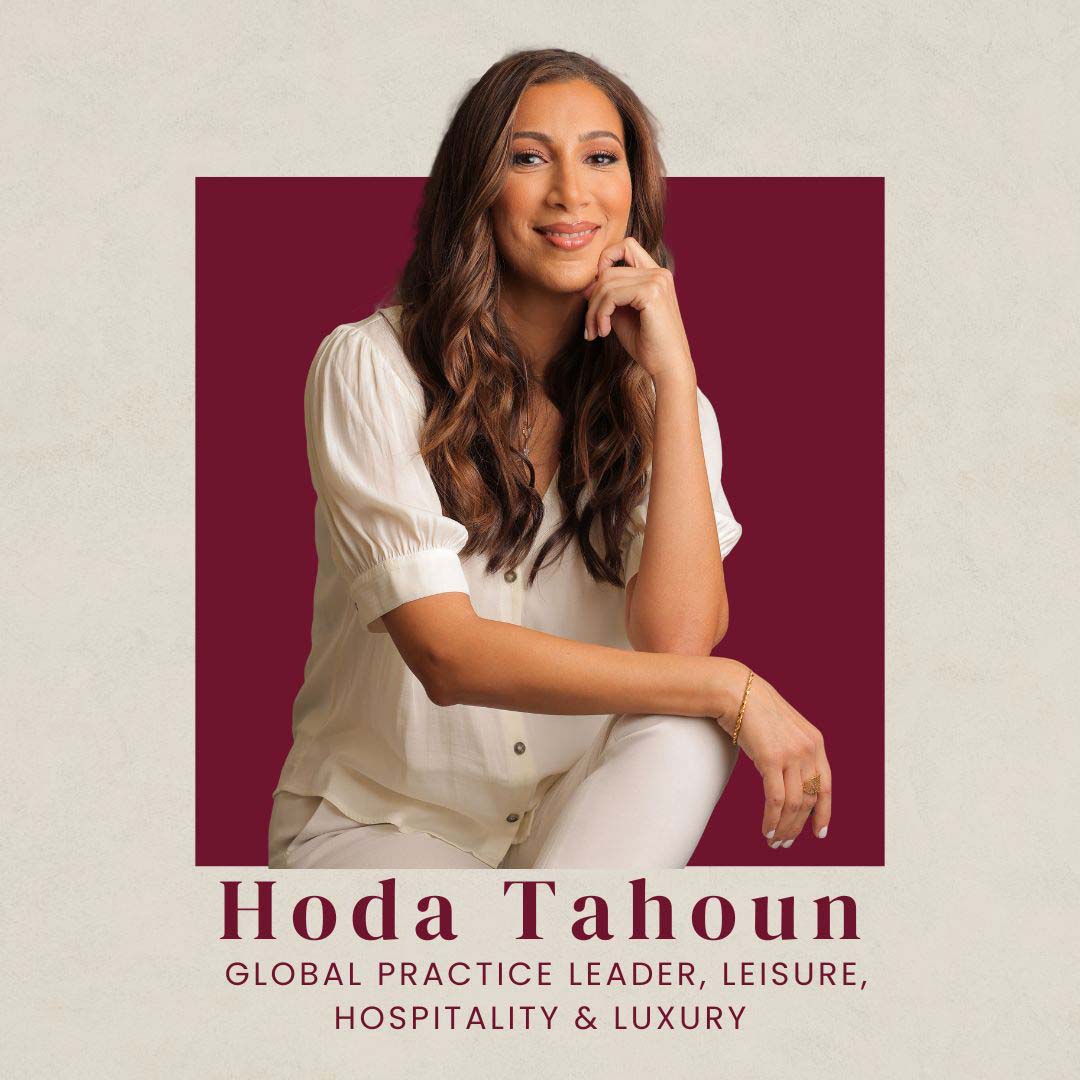CATEGORIES
Leadership and Networking | People We Admire | Relationship BuildingOverview:
- Hoda Tahoun was born of Egyptian heritage; her parents immigrated to the United States which is where she was born.
- After spending her childhood in different regions, it equipped her with a deep appreciation of cultures.
- Hoda believes that authenticity is the key to success, to remain inspired by others, but to inspire others in return.
- Hoda states that managing her mental, physical, and emotional health has become her top priority to maintain balance.
1. Can you tell us about your childhood and what values shaped who you are today?
I am of Egyptian heritage; both my parents are Egyptian. They immigrated to the US and I was born in the United States. When I was four years old, we moved to Bahrain in the Middle East, where I spent my formative years. As a child, I was instilled with the values of hard work and studying, ensuring that I leveraged the excellent education my parents provided.
Coming back to the US and going through high school, I focused on taking advantage of the fact that I had access to a good education, resources, and a wonderful home. My parents valued hard work deeply, and it is something that was instilled in me from a very young age. I take every opportunity as a way to show up and shine by bringing my best energy, effort, and expertise to the table
From childhood to adulthood, I’ve always had a sense of curiosity and learning. As a child, I always showed an interest in doing well in school. As an adult, it has translated into a different and developed inclination towards awareness and growth. Like, how I can improve myself as a leader, or how I show up for my friends and family. There’s a constant curiosity in me that I think comes from my upbringing, and I try to carry it in my everyday life.
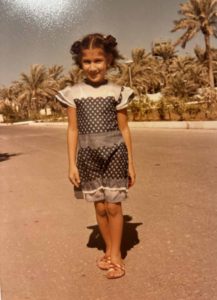
2. Tell us more about your dynamic professional journey (how you started off). What were the pivotal moments in your journey that led you to where you are today?
If you had asked me twenty years ago if I imagined doing what I do now in my career, I would’ve probably laughed and said, “Absolutely not.” I started off in the banking and financial services industry in New York City where I studied finance at university and worked in banking for the first few years. After a while I did what most people in finance and banking do: I pursued an MBA.
At that point, I decided that I wanted to work outside of the US to gain a different perspective from a business standpoint, so I relocated to Dubai and worked for an investment bank there for a few years. It was incredibly eye-opening to get a perspective of diverse cultures, languages, and nuances of decision-making, both in Dubai and with the clients in New York.
When the financial crisis hit, many people in the financial services space, including myself, found themselves out of a job due to the shrinking and restructuring of the sector as banks were collapsing, and institutions were going bankrupt. So I relocated back to the United States in 2010 and spent some time doing a little bit of independent consulting while exploring the next steps in my career. Through a bit of curiosity and networking, I was introduced to executive recruitment and talent consulting. It was a whole new world and I had no idea that there was an entire industry that was focused on recruiting CEOs, C-suite leaders, and board members.
Driven by curiosity, I did some homework and through some of these networking conversations, I joined a boutique executive search firm. Their focus from an industry standpoint was real estate and a bit of hospitality. As a banker in my former career, I had some experience with it. So, I thought: “I know the industry, now I’m going to learn a different part – from the talent side.” It was a great way to transform the knowledge into a different context. I worked there for a few years before moving to a very large firm for a number of years.
I joined Russell Reynolds in 2017, and have called it my executive search “Goldilocks” story – the firm is big enough that we can support clients on a global scale, but on the inside, we operate very nimbly, like a boutique. And within a few years of joining, I was asked to lead the group for hospitality and leisure, and it has been amazing. It’s been an incredible honor to be in a world where I get to lead a team of colleagues and experts around the firm as we work with clients across the hospitality, cruise, entertainment, travel, and leisure sectors.
Much of what I learned in finance and investment has served me well today because I have a more analytical and financial investment-minded approach when engaging with clients. At the same time, I enjoy it a lot as I get to talk about people, culture, transformation, and how that’s constantly changing the perspective on what future leaders are going to look like.
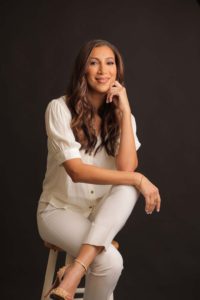
3. Tell us a little bit about your podcast: “Redefiners”. What inspired it, and how is the experience going for you?
Becoming the co-host for Redefiners came as a surprise. The podcast was released a few years ago, and its mission is to bring insights from very successful leaders. The podcast brings the experiences and recommendations of great leaders to a wider audience. That was the genesis of why Redefiners started.
Initially, I was asked to provide an intermission overview of hospitality and leisure leaders for a few minutes in an episode. So I recorded my segment and sent it off. A couple of weeks later, I had a scheduled meeting with one of the podcast leaders and I thought she wanted me to redo the recording, but when I got on Zoom with her, she said: “We’ve been thinking about who the new co-host for Redefiners will be, and we’d love for you to do it.” I was incredibly honored but also frightened at the same time because I’ve never actually been a co-host before where I have to speak and record live without having a script to read.
The other side of the story is that a few months before this happened, I had written in my journal and vision board that I wanted to be a co-host of a podcast. I remember thinking what that would look like, and how amazing that would be. I think there’s a lot of power in thinking, believing, and creating what it is that you are working for in your life, leaving room for how it’s going to show up and not obsessing about when and how. It’s been about a year and a half since I’ve been the co-host for Redefiners and it’s been one of the biggest joys for me because I get to talk to leaders across industries, and it’s been incredibly rewarding.
4. What unique cultural challenges have you encountered in your career while working in the Middle East, compared to your experience in the US, and how did you overcome those?
One of the best pieces of advice I received during my transition between the US and the Middle East was to write down on a piece of paper what you’re good at and what you enjoy doing on the same paper. It may not match, there are going to be some links between the two. Those are going to be just a few things, but those things are translatable to different parts of the world and different industries. In doing this exercise, I found that even though I was good at banking, I didn’t enjoy a lot of what I was doing. A lot of what I enjoyed in that part of my life as a banker was the relationship building, conversations, and client time, not the analysis and financial aspects of it. Now I’m in a career and industry where most of what I do surrounds people, building relationships, solving problems, and a lot of the human factor.
I feel it’s a privilege and advantage I have as I was born in the US but I lived in Bahrain all those years. Innately as a child, unbeknownst to me, I grew up with a lot of different perspectives as I went to school for expats, and as such, my classmates were all over the world. When I came back to the US as a 14-year-old, I was in a very US environment and my perspective on the world was very broad. How I saw and experienced things was from a very broad lens, where the US was part of the story, not the only story on the world stage. Due to such experiences, It has been easier and more natural for me to think about cultural differences, languages, traditions, and nuances. And being Middle Eastern along with a background in the US, I’ve always had to dance around a lot of different things, and think about how to hold on to my heritage but also be assimilated to a country and environment that is different from my heritage.
But at the same time, I’d have to say that I ask a lot of questions. Even today, I still work with clients who are in parts of Europe, Asia, or South America where I’ve never lived or traveled. So, I ask a lot of questions, and I don’t assume I have the answers or figure it out. I rely on a lot of people who I know I can trust, and lean on what I know to share it, the things I don’t know, I say I don’t know and I ask.
5. As someone who has served in leadership roles in various organizations and initiatives, what does leadership mean to you?
One thing that I constantly ask of myself and others who work with me is authenticity. You have to own who you are and who you’re becoming as you evolve and grow as a person. Own what you know and what you don’t know, and as a leader, talk about the things you don’t know and how you’re going to solve them. One of my favorite quotes is “Be you, everyone else is already taken” by Oscar Wilde. Be yourself, be inspired by others, be curious about what others have done, but make it your own.
Secondly, I think empathy and vulnerability go hand in hand. In today’s continuously changing and evolving world, there needs to be more room around being empathetic, holding space for people, and also being vulnerable while showing people that the old model of “you’re perfect and you have it figured out” is not authentic or real. Be vulnerable with what your struggles are, and what you’re working on to inspire others.
The last thing I believe is to find ways to inspire and ignite energy and motivation in other people while doing it for yourself in an effort to continue inspiring others.
6. If you could go back and do one thing differently in your career, what would it be?
It’s funny because I truly believe I’m exactly where I am supposed to be in my life. Every experience I’ve had in my personal and professional life has led me up to this moment and has allowed me to be here. If I had the wisdom of knowing what I know now back then, I probably would’ve had a little bit more fun, taken what I do seriously but not taken myself seriously all the time.
I was at a time in my career earlier when what you studied was what you worked in. So if you study finance, you’ll end up in business. Whereas today, you can study finance and go work in music or you can study music and end up in banking. I think I would have taken a little more risk and tested the boundaries more rather than taking a very linear approach at the beginning of my career.
But I also know that the reason why I did the things that I did was because the people giving me career advice at the time had a narrower view of the career world. It’s important to have mentors and people around you who come from different perspectives and can give you insights from different industries so you can have a broader sense of everything.
At the start of my career, I did not have any role models around me that were businesswomen. There was one person who was a physician. All the other people in my life at the time, who were people I saw through work, were all men. I did not have a perspective from a successful female, hence, my pool was narrower, and so was my perspective,
If I could go back and change something then I would challenge the advice I was given and look at things from a non-linear perspective, even push the boundaries a little bit more. To tell me that even though I don’t have the skills yet, I know I can learn them.
7. Did you have someone who helped guide you in your career? What did you learn from them?
I had different mentors along the way and they’ve changed as well along my career. My father and his friends gave me a lot of advice. Since I’ve had the incredible privilege to do what I do now and build relationships with leaders who come from hospitality and travel, I’ve gained some friendships from it. These people see me in action doing what I do as a leader and consultant, but because they’re further along in their careers, they have been mentors to me. I actively seek it out, but also have been very fortunate that a lot of it has been inbound.
Having mentors who are further along in their careers is important as they provide valuable advice based on their additional years of experience and expertise. Similarly, I believe it’s helpful to have people as mentors who are younger than you, to give you some perspective on things that are changing rapidly. It’s always good to ask yourself what you think you’re good at, what stands out about you, and what you can work on. Such questions are powerful and can give you perspective.
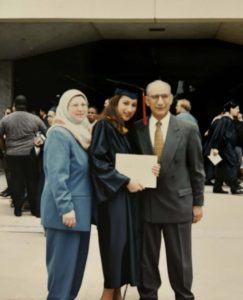
8. How do you maintain a balance between your personal and professional life, and what is your idea of taking a break to relax and rejuvenate?
That has been a journey, and it’s evolved along the way. In my earlier years, there was very little balance as work was heavy. The conversation about work-life balance was so different back then. It has been a journey to relearn and unlearn some things from my prior days in banking where there was no balance, and you worked until you were burnt out, and then you did it all over again. Work went on for very long hours and it was the mindset and environment if you were banking. There might still be some of that today in many industries but in today’s world, I’ve found ways to put some guardrails around where I know I’m going to be best.
I’m a morning person and I do my best work in the morning from about 8 am to 2 pm. I have the most important conversations that I’m going to have in my workday in that time frame. If there’s going to be an important conversation that’s going to happen after that, I make sure to have time for me to recharge and re-energize. I take a walk, maybe ten minutes off my screen, and find some way to re-energize if it’s going to be a 4 pm call.
I’ve also prioritized my physical, mental, and emotional health and I do that in a variety of ways. I have a consistent physical regimen that involves working out and making sure I’m in motion at least a few times a week. I prioritize meditating every morning, whether for 15 minutes or an hour, depending on how much time I have for myself and how much sleep I had the night before. I also actively do things like acupuncture and ice baths, but I make sure to have room to do that on a regular enough basis and not a repair thing. Some people run their bodies through till they get sick or injure themselves, but I’ve decided that I can do acupuncture every two months like a tune-up. If I do all of the things I need to do, eat well, sleep well, and drink lots of water, then there’s enough balance in my mental, physical, and emotional state and that makes everything a little easier.
9. Beyond your professional life, what are your passions and interests?
I’m a very curious person by nature, so I love to learn new things. Usually, once a year, I pick something that I’ve never done before as an activity that I’ll be terrible at initially and decide I’m going to learn it. A few years ago it was tennis, last year it was learning Portuguese, this year I’m learning paddle, a challenging racket sport with unique rules. It’s very hard, the rules are different, and all of that. In my personal life, I enjoy sports like paddleboarding, Pilates, and tennis.
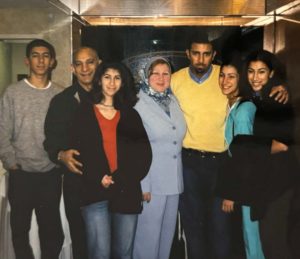
I also really love to travel, pick a new place, and try to immerse myself in something unfamiliar because you learn in that kind of environment. I’m also learning to cook and it’s been a journey. I make a few meals, but I don’t know how to cook very well. What I really enjoy is spending time with my family and friends, the people who enrich my life, bring me joy, but also challenge me to view the world in a different way.
Conclusion:
Hoda Tahoun’s journey exemplifies the power of curiosity and passion in both personal and professional life. From her diverse upbringing to her dynamic career path across continents, Hoda has consistently embraced new challenges with an open mind and a commitment to growth. Her dedication to authenticity, leadership, and well-being has not only shaped her success but also inspired others around her. Hoda’s story is a testament to the importance of staying true to oneself while continuously learning and evolving, proving that with curiosity and passion, balance and fulfillment in life and career are achievable.

